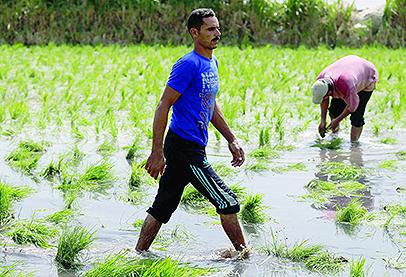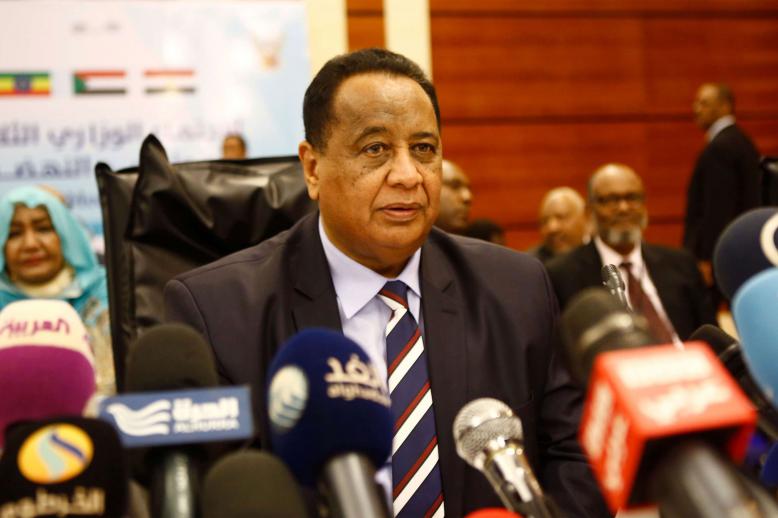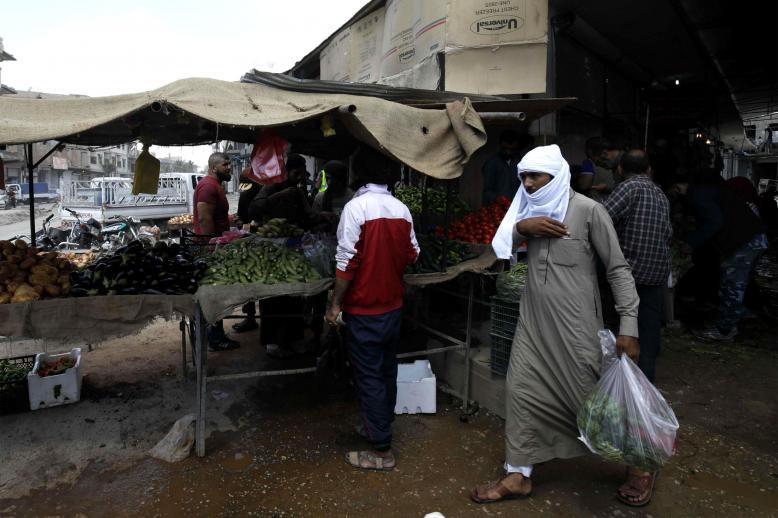Adapting to water shortages, Egypt reduces rice cultivation

Egypt is reducing cultivation of water-consuming crops, including rice, raising concern about a deterioration of the quality of the country’s most fertile farmland and fears of increasing food prices and shortages.
“By suspending the growing of some crops, we are risking the loss of massive farmland,” warned Nader Noureddine, a professor of agriculture and irrigation at Cairo University. “This will affect the salinity of the soil in some farmland, which will be devastating to the agriculture sector.”
An average of 1,400 litres of water are used in the production of every kilogram of rice. Egypt used to cultivate 445,000 hectares of farmland with rice, producing 4.4 million tonnes yearly. This satisfies local demand (3.8 million tonnes) and leaves the rest for export. Cairo imposed an intermittent rice export ban since 2008 to preserve stocks for domestic markets.
Egypt’s rice cultivation required about 1.8 billion metres of water in evaporation, transpiration and irrigation every year.
This year, however, agricultural authorities specified 284,100 acres of farmland for rice cultivation. The government threatened to fine farmers who grow rice in areas not specified for crop cultivation and Egypt’s Supply Ministry has kept in place a rice export ban for the coming harvest.
The Ministry of Irrigation said the drop in rice cultivation space is necessary if Egypt is to ensure that it has sufficient water to cultivate other groups and for domestic use.
“We cannot do anything else in the light of the limited amounts of water we have,” Abdelatif Khalid, head of the Irrigation Department at the Ministry of Irrigation and Water Resources, said. “We have to grow less rice to save the water for other uses.”
The plan to grow less rice — among other measures — comes amid reports of a potential deal between Cairo, Khartoum and Addis Ababa to end a deadlock over the Grand Ethiopian Renaissance Dam project. When the hydro-electric dam goes online, it is expected to significantly reduce the amount of water available to Egypt via the Nile, Egypt’s main source of water.
Egyptian media reported that the expected plan would have seen Egypt accept a deduction of 425 million cubic metres of water out of its annual share of 1.56 billion cubic metres over three years the Renaissance dam reservoir was to be filled.
To make up for the loss of agricultural produce during those years, Egypt would see increased imports offset by Ethiopia.
While it is unclear if this deal is viable following the unexpected resignation of Ethiopian Prime Minister Hailemariam Desalegn, importing certain crops could be less costly for Egypt than growing them, particularly water-consuming produce, at home.
“Egypt is water-poor already and it cannot keep growing crops that need huge amounts of water,” Khalid said. “Growing crops like rice and exporting it is akin to exporting water, which should not be allowed for a country like Egypt.”
Egypt suffers an annual deficit of more than 566 million cubic metres of water. The filling of the Ethiopian Renaissance dam will create greater water shortages.
Suspending the cultivation of water-consuming crops is only one of a series of measures Egypt is taking. Cairo is spending billions of dollars on building seawater desalination projects and establishing sewage treatment plants.
The government of President Abdel Fattah al-Sisi has a plan to establish 100,000 greenhouses to produce major vegetables and fruit yields utilising comparably small amounts of water.
Agriculture consumes more than 80% of Egypt’s water resources and experts said the country must institute strict measures to cope with increasingly severe water shortages.
“We have to economise on our water consumption or we will not be able to produce food for this growing population,” said Gamal Seyam, a professor of agricultural economics at Cairo University.
Egypt’s population, now 96 million, is expected to grow by about 55 million by 2050.
“Suspending the cultivation of rice will destroy large swaths of farmland in the Nile Delta, the most fertile in this country,” Noureddine said. “Increased salinity will mean that the farmland will be destroyed forever and in an irreversible way.”
Hassan Abdel Zaher is a Cairo-based contributor to The Arab Weekly.
This article was originally published in The Arab Weekly.





